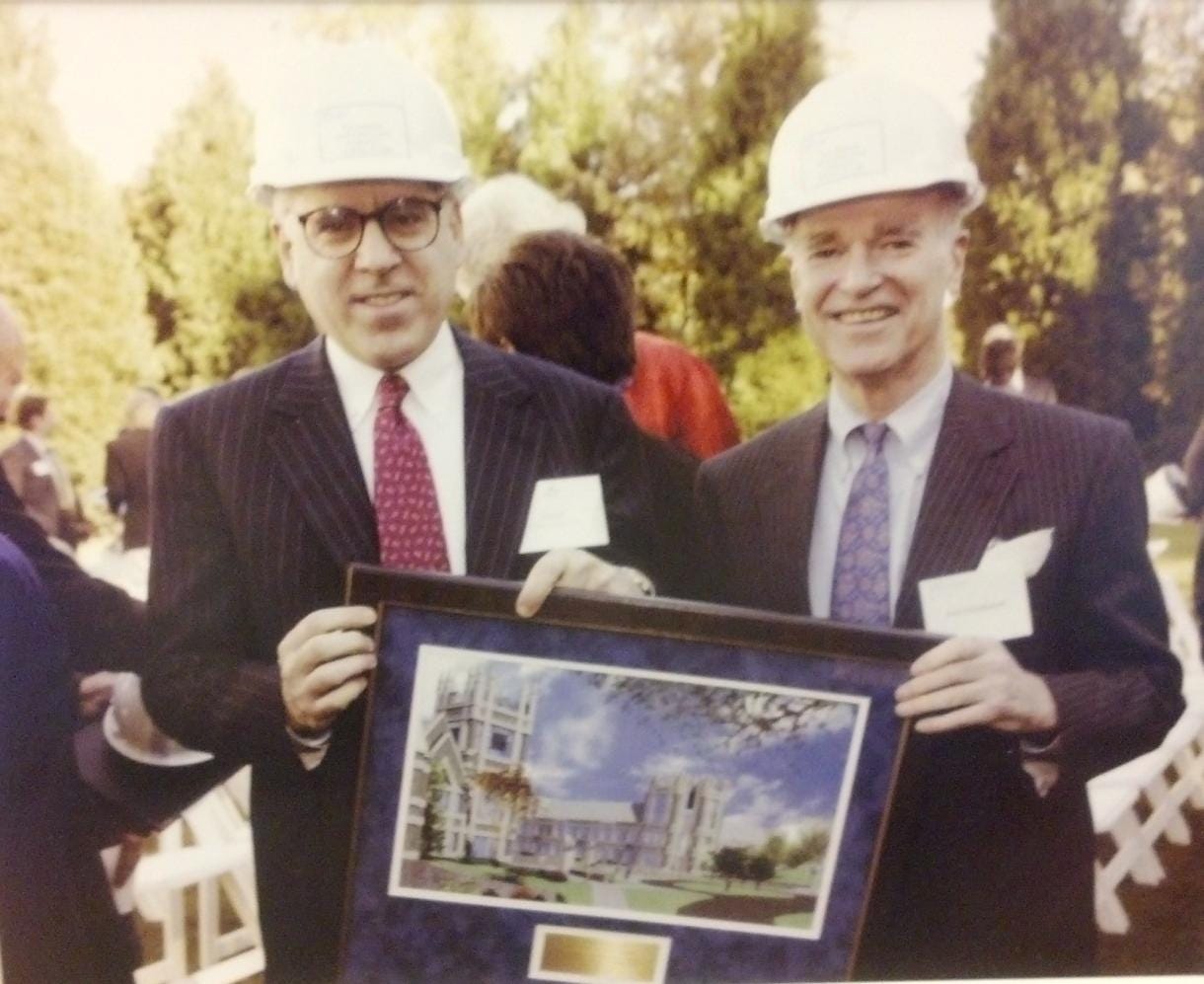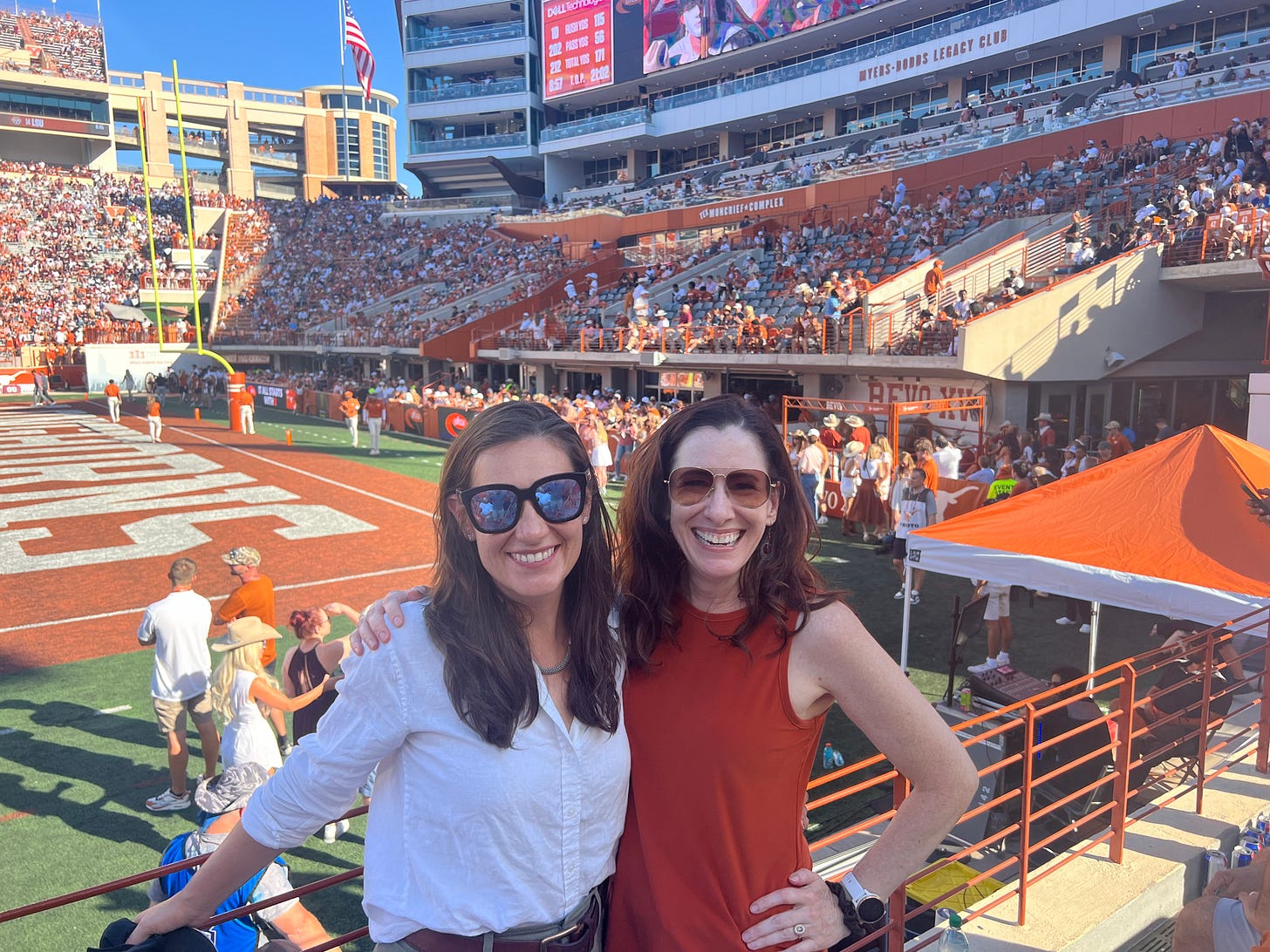If You're Gonna Play in Texas (You Gotta Have a Fiddle in the Band)
w.243 | Alternatives, Changing Tides in VC, Automattic & Open Source, In Memory
Dear Friends,
It’s been unfortunate to see all the damage and despair resulting from Hurricane Helene. I suppose we all knew this event was possible and that such days might come to pass, but it's still sad and a reminder that the 1-in-1,000 scenario can in fact happen. Sending hopeful thoughts to those impacted and wishing for the best as another hurricane is forecast to hit central Florida this week.
October 1st (i.e., the transition from Q3 to Q4) is a happy dividend reinvestment day for all who celebrate. Nothing warms my heart like compound returns, vested equity, and dividend reinvestments. I highly recommend getting your dopamine hits this way.
Today's Contents:
Sensible Investing: Trends
In Memory
How I Manage My Own Money
Song of the Week: If You're Gonna Play in Texas (You Gotta Have a Fiddle in the Band)
Sensible Investing: Trends
An Alternative Perspective: Past, Present, and Future By KKR. Great long read - 66 pages that provide a useful state of the union for 11% of total GDP. Obviously, this is also self-serving marketing material.
Big Funds, Small Funds, and the Changing Tide. Or, where to look when most investors have turned salespeople and rates begin to rise—written by an analyst at Nomads VC, a VC FoF. I agree with this perspective:
If a small fund is taking punchy bets, with unique insights, they are likely benefitted by a pullback in venture funding provided they can raise their fund. At seed, having smaller funds means that each unique insight you have has a greater impact on your fund MOIC. They have less access constraints and smaller teams which means more freedom for independent decisions. In a less liquid environment, they’d face less competition, their signal would mean more to big funds, and since they are not usually investing behind consensus narratives, their money would be worth more to founders. However, finding these funds requires going far out the risk curve - usually something like SaaS in San Francisco is too efficiently priced.
159 employees are leaving Automattic as CEO’s fight with WP Engine escalates (roughly 8.4% of staff). I’ve watched the brawl between WP Engine and Automattic unfold on X. It’s a pivotal moment for the open-source software community as it grapples with power, ownership, and control. What is truly free and open? Where does the power lie? How will these questions be resolved?
There are now many more open-source software companies and projects. Web3 was a movement toward decentralized ownership and governance, but aligning interests didn’t work, and leadership was often self-interested and self-dealing. It will be interesting to see how this ends, particularly the lasting sentiment in the developer community. 8.4% of staff leaving seems like…a lot? IDK.
How to Opt Out of AI Online. (You can’t, really). In The New Yorker.
In a recent investigation of the “slop economy” for New York, Max Read writes that from Facebook’s perspective slop posts are “neither scams nor enticements nor even, as far as Facebook is concerned, junk. They are precisely what the company wants: highly engaging content.”
Read concludes that slop is ultimately what people want—we consume it, so we must on some level like it. Among the vital participants in the slop economy are “all of us,” he writes. But it’s hard to accurately gauge the appetite for something that is being forced upon us.
In Memory
Not a recurring section, but why not this week?
Maggie Smith Rejected Irrelevance. “Dame Maggie Smith was certainly one of a kind, irreverent, proper and iconic, she showed the world that career and ambition can continue long into the third act of life. What a woman, an example to future generations of how to be” H/T SIC Weekly.
Nice sentiment!
Honoring Joel Fleishman. The announcement of Joel’s passing came in an email from Duke today. Joel Fleishman was the founder of Duke’s Public Policy School and wrote an incredibly influential book called The Foundation: A Great American Secret: How Private Wealth is Changing the World about philanthropy. He was a quiet influencer behind many large foundations and giving programs and helped take Duke from a mid-ranking school to a top-10 university. He was tangential to my world on campus, but I found my way over to his house several times for his frequent receptions and networking events. He had a dynamic approach to friendships and network-working, which I saw others emulate. He will be missed by many.

How I Manage My Own Money
Over the last few weeks, I’ve had multiple conversations with friends and readers about managing investments and responding to questions about investment decisions and opportunities to pursue.
Over the last year, I’ve also had several friends and colleagues who, at one point, had life-changing financial outcomes (i.e., the ability to not work for money if they so choose) only to make a series of decisions that reversed their fortunes. These actions include not diversifying when you can, poorly accounting for taxes, investing too much into illiquid alternatives, confusing gambling for investing, etc.
Many founders don’t think like investors at all. On reflection, I should have expected this from more technical or product-focused folks. But still. Case in point: One friend told me recently that he received ~$1M in stock (as part of carry compensation) when one of his firm’s portfolio companies went public. He didn’t sell because a financial advisor told him he’d have to pay a tax bill; six months later, he checked the market, and the value was down to $200,000. ‘Nobody told me to sell!’
One reader exclaimed that it was impressive that I invested in value single names and read (and shared) obscure investing analysis. But, by and large, this isn’t what I do.
Given readers’ interest and to codify my thoughts, I’ll be writing this all out and sharing it. But I haven’t finished yet, so stay tuned…
Song of the Week: If You're Gonna Play in Texas (You Gotta Have a Fiddle in the Band)
Here on YouTube.
It's a super catchy song played at the end of the second quarter at UT home games, and it captures the spirit of the celebration. Hearing 100,000 people sing along while wearing burnt orange under the Texas sun makes the tune all the more memorable.
“If You're Gonna Play in Texas (You Gotta Have a Fiddle in the Band)” by Alabama
If you're gonna play in Texas, you gotta have a fiddle in the band
That lead guitar is hot but not for "Louisiana Man"
So rosin up that bow for "Faded Love" and let's all danceSelfie of the Week
My friend Claire is one of the few truly Austin natives I know. She grew up on a farm outside of Austin, went to UT, and has been here more or less ever since. She’s now a mainstay in the angel and venture ecosystem here.
She is a proud season ticket holder for UT, and I grabbed last-minute tickets when a few of her regular crew dropped out last weekend. It is a true cultural experience of Texas, and I highly recommend it.
Thanks for reading, friends. Please always be in touch.
As always,
Katelyn



Thanks for the h/t Katelyn! Credit where credit's due: @celeste blewitt sent me the Maggie Smith eulogy.